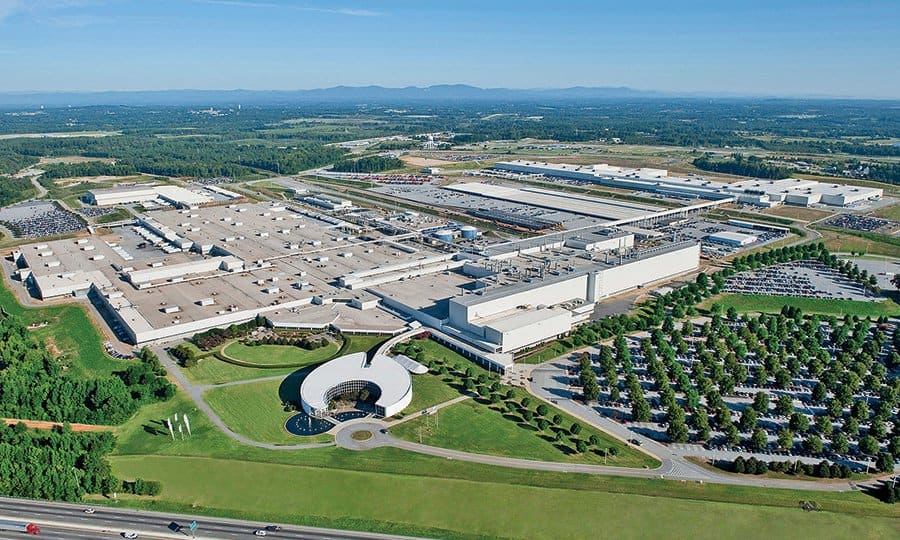Trade correspondent L.C. reports:

Did the Commerce Department meet its February 17th deadline to deliver to the White House a report on whether automotive imports are a threat to national security? No one knows, and the White House isn’t saying.
The secrecy is rankling. As the president of the American International Automobile Dealers Association said, “If you’re subjecting products that my members sell to tariffs and accusing me of potentially being a national security threat, I think the least you can do is let them know the outcome. We’ve waited 270 days for this bogus investigation.”
According to various sources, the Commerce report does claim that automotive imports are a national security threat and recommend that the President take action to restrict them.
Recently there has been speculation that the Administration might link its automotive import actions to its complaints against China’s Huawei and ZTE and focus on advanced technology incorporated into vehicles that could enable spying or hacking. Cameras, microphones, location tracking, autonomous driving mechanisms, and online connections, for instance, could be used to spy, invade privacy, or even control and disable a vehicle. That would give the US president a more credible basis for declaring the imports a national security threat.
There is bipartisan support for tough measures against the Chinese telecom giants for the threat they pose to national security through their embedded technologies. Hence, such an approach by the President would be harder for Congress to oppose.
But it remains to be seen what Commerce is recommending and what the President chooses to do. He must announce his decision – his specific actions or his decision not to take action – within 90 days, and then implement any actions within 15 more days.
The White House may not want to reveal what Commerce has proposed until after the 90-day China talks have concluded. Although China doesn’t export many vehicles to the US, it does export auto parts. On the other hand, unveiling restrictive measures hitting Chinese automotive exports could give the President leverage in his eventual trade meeting with Chinese President Xi Jinping.
It remains the case that there is almost no support for restricting automotive imports. Auto manufacturers and dealers are fiercely opposed. All US auto companies import a significant number of vehicles they make abroad. This week more reports were released that predict dire consequences if automotive tariffs are imposed, and few refute this picture.

The Germans, being the President’s most direct target, are intensifying their warnings. This week, Chancellor Angela Merkel used her speech to the Munich Security Conference to warn against hitting German automakers with a Section 232 action. Merkel pointed out that BMW’s plant in South Carolina is the largest BMW plant in the world and the largest exporter of US-made cars, many of which go to China, and that other German car manufacturers also have plants in the US. Those facilities would be injured by tariff hikes on components they import and by tariffs hitting imports of their cars manufactured abroad. There would also be foreign retaliation against US-made cars following any Section 232 automotive action. Other sectors would also likely be hit by foreign retaliation, compounding the blow from earlier retaliation to the US tariffs on imported steel and aluminum.
That’s a key motivator for the blanket opposition to auto tariffs in Congress. On February 14th, Senate Finance Committee Chairman Chuck Grassley (R-IA) said on the Senate floor,
Tariffs are not a long-term solution….While they may provide short-term protection for domestic industries, they do so at the expense of ordinary consumers and industries increasingly dependent on complex global supply chains…. raising tariffs on cars and parts would be a huge tax on consumers who buy or service their cars, whether they are imported or domestically produced…. I hope the President will heed my call to forgo the auto tariffs and focus on opening new markets. The US auto industry is a major driver of our economy, supporting nearly 10 million American jobs and accounting for 3% of our GDP. Without question, any tariffs that are imposed will have a negative effect on the US auto industry and our economy.
This week the Michigan-based Center for Automotive Research released a report that a 25% tariff on vehicles and parts would hike car prices so much that about 367,000 US jobs would be lost if imposed along with continuing steel and aluminum tariffs and Section 301 tariffs on imports from China (including auto parts). This is even assuming that Canada, Mexico, and South Korea are exempt.
With so much opposition to automotive Section 232 tariffs, it’s possible the President will decide to do nothing, or something narrowly targeted and perhaps just symbolic, or measures aimed only at certain high-tech products that won’t cause pain to many trading partners and a boost to US prices.
Nonetheless, President Trump wants to take some sort of action against foreign, especially German, auto-makers. He considers the imposition of tariffs an excellent, cost-free policy. So he may yet follow his stated desire and impose a 25% automotive tariff, perhaps even hitting Japan as well as the EU.
More US-China trade negotiations but no breakthrough

Deputy-level trade talks between the US and China resumed in Beijing on February 11th, followed by ministerial-level talks on February 14th. But not enough was accomplished this past week to expect a conclusion of the 90-day talks by the March 1st deadline. President Trump suggested this week that he might extend the 90-day deadline for another 60 days – giving up leverage in the talks but showing that he is not simply focused on hiking the tariffs.
The South China Morning Post reports several sources saying the talks weren’t going well for the US. “There are already significant doubts about what China is putting on the table,” said one, since it is largely recycling old offers like a “bad record” that the US doesn’t want to hear.
This suggests that China is not preparing to accede to the US’s “structural demands.” Yet making those hard-line demands is one of the few aspects of Trump Administration trade policy that has bipartisan support. This week seven Democratic senators (Menendez, Whitehouse, Warner, Hassan, Cardin, Bennet, Cortez Masto) sent the President a letter warning against accepting a soft deal. “We urge you to insist that the deal make substantial, verifiable, and enforceable progress to address the myriad threats identified in USTR’s [Section 301] investigation,” they wrote. “Your negotiations should seek to extract meaningful commitments… on each of these elements and end the threats that these policies pose to the US economy and national security.” An “acceptable agreement” must address all the main methods the Chinese use to steal intellectual property and must have “a clear and transparent monitoring and enforcement mechanism.”
In other words, the President was put on notice that the Democrats will use any sign of softness toward China against him politically.
USMCA approval by Congress not sure thing

The problems facing congressional approval of the USMCA are not abating.
This week, prescription drugs became the focus of Democrats who object to the 10-year test data protection period given biologic drugs. The objection is that this long a period will keep the cost of these medicines high for an extended time, not just abroad but also for Americans. “This is an outrageous giveaway to Big Pharma…. a monopoly. It’s bad policy,” Rep. Rosa DeLauro (D-CT) told reporters. House Trade Subcommittee Chairman Earl Blumenauer (D-OR) told reporters, “I don’t think, candidly, that it [the USMCA] passes out of my trade subcommittee. The biologics are some of the most expensive drugs on the planet.”
With this becoming a big sticking point with Democrats – who see lowering drug prices as a winning political issue – it is difficult to see how the Administration might proceed. It’s unlikely that reopening the text will be possible. This was reiterated this week by a Mexican trade official who told reporters on February 14th that “Mexico is not considering any renegotiation of anything. This is what… we will have to learn to live with.” The official said that Mexico also doesn’t like parts of the agreement – for example, auto rules-of-origin – but is willing to accept the accord anyway.
The Democrats’ other objections to the USMCA aren’t easing either. Democrats continue to insist the labor and environmental enforcement isn’t strong enough. Sen. Sherrod Brown, the trade hawk who is expected to run for president, declared, “I don’t see evidence that [USMCA] is going to pass…. There are few Democrats in the Senate that support it.” Organized labor, he noted, is “overwhelmingly against it.”
Regarding the other major obstacle to passing the USMCA – the Section 232 steel and aluminum tariffs applied to Canada and Mexico – a Mexican official warned that if the tariffs persist after two or three more months, Mexico may switch to the carousel method of imposing retaliatory tariffs. Under carousel, the retaliating country can periodically change the mix of imports subjected to the tariffs. This is highly annoying to the targeted trading partner because it causes great uncertainty for its exporters. It is WTO-legal and has been legal under US law for almost two decades. Washington used it as an aggressive move against the EU in the hormone-treated beef dispute.
This is a major escalatory threat by the Mexicans. In fact, US exporters, led by farmers, are so alarmed at continued foreign retaliation against the metals tariffs that Agriculture Secretary Sonny Perdue said on February 11th that his department argued with the White House that the tariffs should be immediately ended.
So between threatened auto tariffs, ongoing metals tariffs, the US-China trade negotiations, and getting the USMCA through Congress, the administration is going to be in for much domestic and international contention over trade policy in the next few months.

Leave a Reply